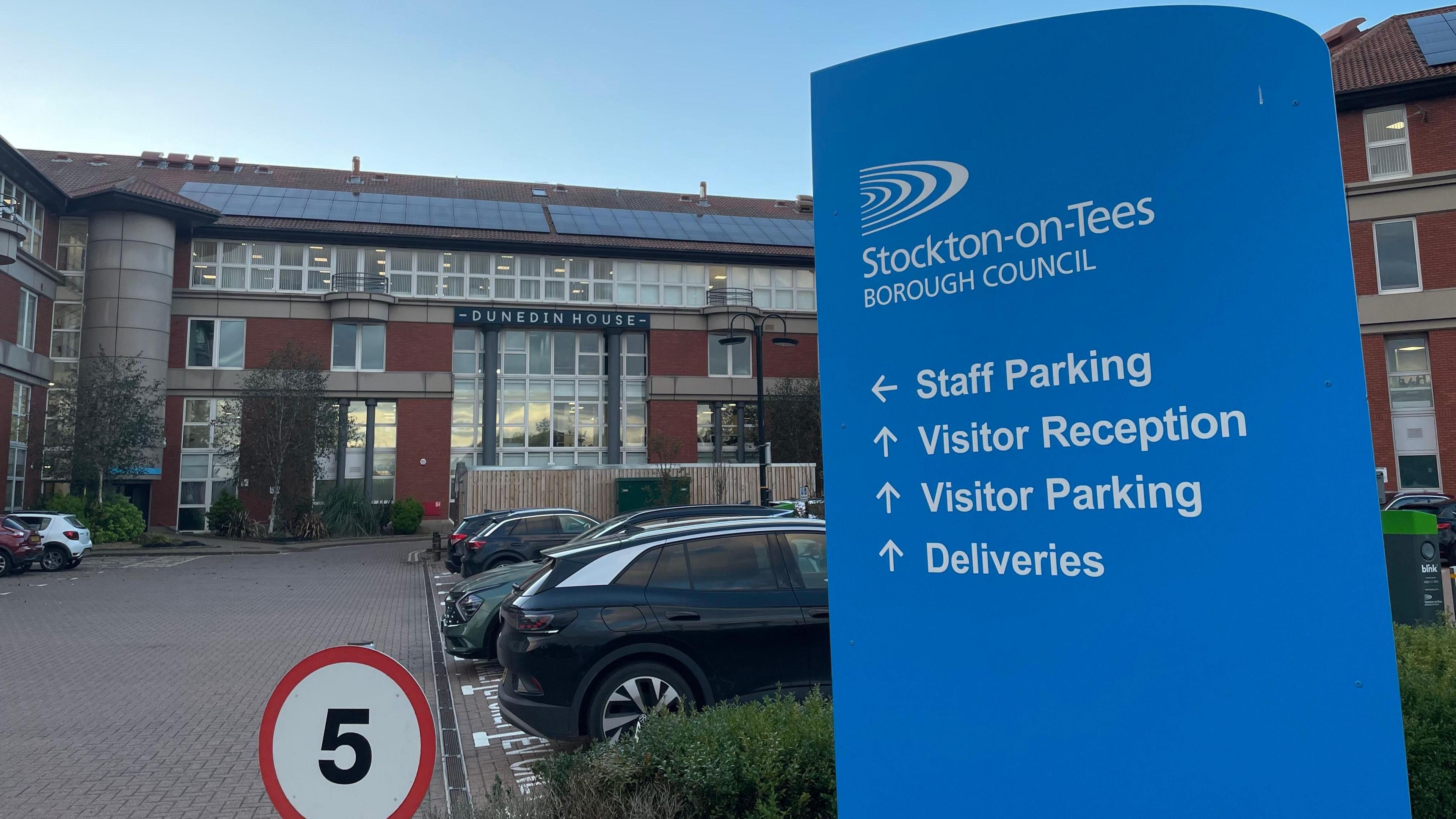Council claims AI pilot saves staff time

Stockton Council has been testing AI transcribing software
- Published
Artificial intelligence programmes being piloted at Stockton Council are "fundamentally changing" how staff work, bosses have claimed.
The local authority is one of 25 testing AI systems which transcribe and summarise meetings.
Council officials said the pilot had already drastically reduced paperwork and saved staff time.
Public sector union Unison urged local authorities to adopt AI to help staff and reduce working hours, but not as a means to cut jobs.
The two systems being tried out in Stockton are Minute and Magic Notes which can record, transcribe and summarise meetings attended by up to 40 people.
Templates such as action plans or internal reports can also be completed automatically.
The council's deputy leader, Labour's Paul Rowling, said: "Speaking with the staff, it is fundamentally changing their day-to-day job.
"They can spend much less time doing admin and much more time delivering those public services that our staff are dedicated to."
Corinne Moore, the council's digital and website development manager, said it had reduced staff workload.
"One example is in public protection," she said.
"Some of the meetings in there take a significant amount of time and someone would have to transcribe that entire meeting by hand.
"Being able to record it has taken that time down from three hours of transcription to half an hour."
'Upskilling staff'
Unison's AI policy lead Kate Jones said many local authority workers were benefiting from artificial intelligence systems, but there was concern over the potential for job losses.
"If it is used, it needs to be used for the benefit of public services and to improve the working lives of workers," she said.
"There are definitely workers out there who are really concerned for their jobs.
"It is really important that any introduction of a transformative technology is accompanied by a serious plan for reskilling and redeployment."
Rowling said the council was not intending to use it to reduce staff numbers.
"We see it as a way of upskilling our staff and improving their skills to make them ready for the future," he said.
"We certainly don't see it as a cost cutting or job cutting exercise."
Follow BBC Tees on X,, external Facebook, external, Nextdoor and Instagram, external.
Get in touch
Do you have a story suggestion for BBC Tees?
